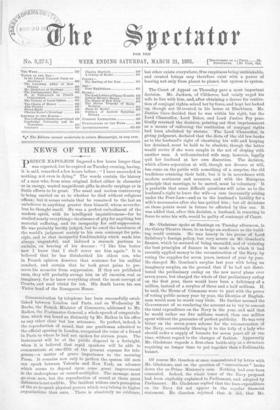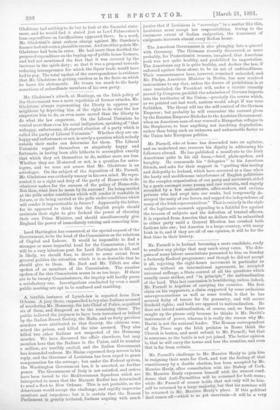Of course Mr. Goschen at once remonstrated by letter with
Mr. Gladstone, and on the question of " concealment " broke down the ex-Prime Minister's case. Nothing had ever been concealed. Indeed, the whole tenor of the Navy proposal had been explicitly explained to Parliament, and adopted by Parliament. Mr. Gladstone replied that the loan-expenditure on the Navy did not appear in the regular financial statement. Mr. Goschen rejoined that it did, that Mr.
Gladstone had nothing to do but to look at the financial state- ment, and he would find it stated just as Lord Pahnerston's loan-expenditure on fortifications appeared there. In a word, Mr. Gladstone's most serious charge against Mr. Goschen's finance had not even a plausible excuse. And on other points Mr. Gladstone had been in error. He had more than doubled the proposed expenditure on the buying-up of public, house licences, and had not mentioned the fact, that it was covered by the increase in the spirit-duty ; so that it was a proposal towards reducing intemperance for which the liquor trade would have had to pay. The total upshot of the correspondence is evidence that Mr. Gladstone is getting careless as to the facts on which he bases his statements. He trusts too much to the hasty assertions of subordinate members of his own party.



































